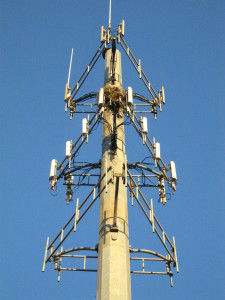The U.S. Supreme Court recently issued a decision in T-Mobile South LLC v. City of Roswell, which involved the city’s denial of a cell tower application. The Court held that the federal Telecommunications Act mandates that municipalities provide a written explanation when denying a request, and that the explanation must be issued essentially contemporaneously with notice of the denial.
The Facts of the Case
Roswell’s city council (Council) held a public hearing to consider T-Mobile South, LLC’s (T-Mobile) application to build a cell phone tower on residential property. In light of concerns about the tower’s impact on the area, the Council unanimously denied the application. Two days later, the City informed T-Mobile by letter that the application had been denied and that minutes from the hearing would be made available. The detailed minutes, explaining the Council’s decision were published 26 days later, or four days before the deadline for T-Mobile to challenge the denial.
T-Mobile subsequently filed suit, alleging that the Council’s denial was not sup- ported by substantial evidence in the record. The District Court agreed, concluding that the City, by failing to issue a written decision stating its reasons for denying the application, had violated the Telecommunications Act of 1996, which provides that a locality’s denial “shall be in writing and supported by substantial evidence contained in a written record.” The Eleventh Circuit Court of Appeals reversed, finding that the statute’s requirements were satisfied because T-Mobile received the letter and meeting transcript.
The Supreme Court’s Decision
The Court held that the Telecommunications Act requires localities to provide reasons when they deny applications to build cell phone towers. The Court specifically noted that it would be difficult for a reviewing court to determine whether a locality’s denial was “supported by substantial evidence contained in a written record,” §332(c)(7)(B)(iii), or whether a locality had “unreasonably discriminate[d] among providers of functionally equivalent services,” §332(c)(7)(B)(i)(I), or regulated siting “on the basis of the environmental effects of radio frequency emissions,” §332(c)(7)(B)(iv), if localities were not obligated to state their reasons for denial.
Under the Court’s ruling, the written explanation does not have to accompany the initial denial letter. However, it must be provided in a timely fashion. As explained in the majority opinion, localities are not required to provide their reasons for denying siting applications in the denial notice itself, but may state those reasons “with sufficient clarity in some other written record issued essentially contemporaneously with the denial.”
As this case highlights, cell facility permitting continues to require careful attention by municipalities. For more information about this case or the legal issues involved, we encourage you to contact a member of Scarinci Hollenbeck’s Government Law Group. You can also fund more information about the U.S. Supreme Court on the Constitutional Law Reporter (http://scarinciattorney.com).

